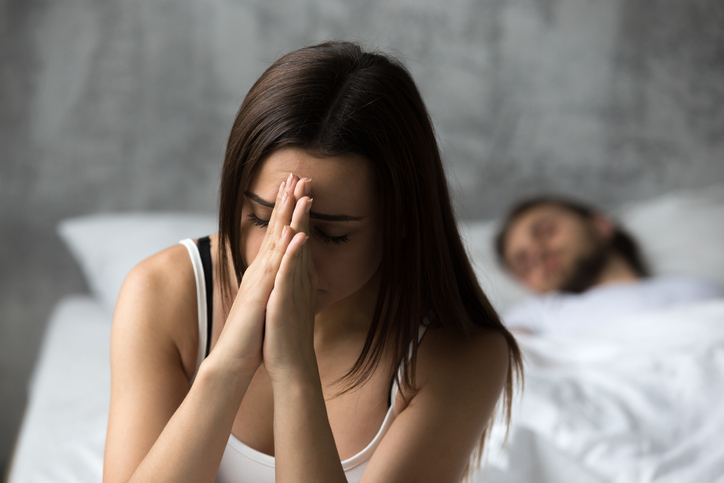Domestic violence explained
Domestic violence is when someone hurts or bullies their boyfriend, girlfriend, partner, husband, wife or family member.
This content has been written for children and young people. If you’re looking for information for over 18s, visit our Types of Crime information about domestic violence.
How does it happen?
It can happen when people live together, live separately or even when they have split up.
It can happen to anyone, including both men and women. Domestic violence is sometimes called domestic abuse.

Domestic violence is a person’s way of getting power and control over someone else. It may involve:
- Emotional abuse – such as constantly putting a person down, checking where they are, stopping them seeing their friends or family, or stopping them having a job.
- Physical abuse or assault – such as hitting, pushing, kicking, pinching, throwing or smashing things, or making threats to hurt someone.
- Sexual abuse – making someone do sexual things they don’t want to, including sex crimes such as rape or online sex crimes such as posting sexual photos of someone on the internet.
- Financial abuse – for example, not letting someone have money, taking out loans on behalf of a person, checking what someone spends money on, or taking someone’s money from them (theft).
- Honour-based violence – when someone is threatened or hurt because their family or community believes they have brought ‘shame’ on them.
- Stalking or harassment – following, watching, threatening and being abusive to someone.
You may feel you are experiencing abuse like this in your own relationship. This is called relationship abuse.
It can be frightening to see or hear someone in your family that you love being hurt. Remember that the abuse is not your fault and it is not down to you to make it stop.
If you’re worried about domestic violence happening to someone you care about, it’s important to keep yourself safe. Don’t try to stop the fighting or arguments – you might get hurt. If you’re feeling worried, scared, sad or angry, you may find that talking to someone about it can help.
Some things you can do:
- Tell an adult you trust – this could be a teacher, a family member, your youth worker, social worker or support worker. It can be difficult to know how to have this conversation; we have some tips on asking for help.
- If it’s safe, think about telling the person who is being hurt how you feel about what is happening.
- Keep a record of things that happen – don’t do this or keep this record where the person who is hurting someone can find this – as this may make you unsafe.
- With a safe adult, you could develop a safety plan that would help you choose how best to keep yourself safe.
- Talk to your friends. A good friend will listen to you and may help you speak to an adult.
- Think about reporting it to the police. If you are at immediate risk of getting hurt, call 999.
If you’re worried about a friend, we have some tips on how you can start the conversation and get them the right help.
Why can’t they just leave, or tell them to leave?
Domestic violence can happen over time, and it can be really difficult to leave. This may be because the person is scared, they do not have the money to leave, or they hope the abuse will stop. It’s never their fault that this has happened but there are people who can help them to get safe.
Can domestic violence happen to men?
Domestic violence can happen to both men and women, and in both straight and same-sex relationships. Domestic violence is when one person has control and power over another; it doesn’t depend on their gender or physical strength.
I only heard it happen and wasn’t hurt, why am I upset?
Just because you weren’t physically hurt doesn’t mean that this has not affected you. It can be very upsetting to see or hear domestic violence and it’s important that you talk to someone who can help.
Will I make it worse if I tell on someone in my family?
If domestic violence is happening in your family it means that things are already not okay. By talking to a trusted adult, you can get the support you and the people in your family need, and help to keep you and them safe. It’s important that if you’re scared or unsafe that you talk to a trusted adult as soon as you can.
Victim Support’s Children and Young People Services – you can contact your nearest Victim Support office, call the 24/7 Supportline, contact us via live chat, or if you are 16 or older, you can create a My Support Space account. This is a free, safe and secure online space where you can work through interactive guides to help you move forward after crime.
Childline – they offer 24-hour support for young people on a range of issues: 0800 1111.
National Domestic Abuse Helpline – this free, 24-hour helpline for women provides information and advice if you are experiencing domestic violence yourself or if you’re worried about someone else: 0808 2000 247.
The Hide Out – this website helps children and young people understand more about domestic violence and what they can do.
The Mix – this website provides information and support for under 25s on a whole range of issues, including rape and sexual assault as well as safe sexual relationships. Get confidential help by email, text, webchat or phone: 0808 808 4994.
